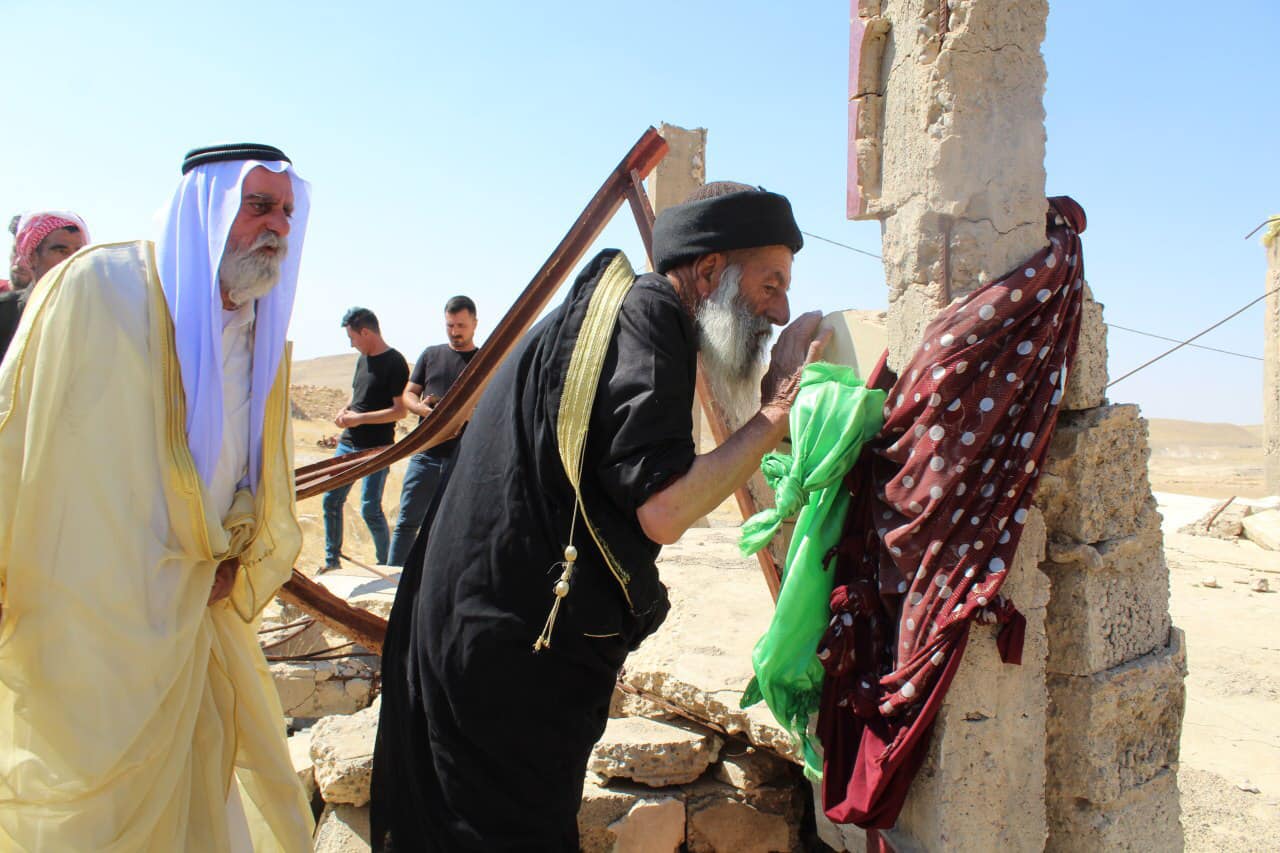Seven Ezidi candidates are competing for the sole quota seat in Nineveh province. However, dozens of other candidates outside the quota seat are also seeking to enter parliament in various ways to advocate for the survival, unity, and issues of the Ezidis throughout Iraq.
The fate of 2,800 Ezidis remains unknown due to their abduction by the Islamic State of Iraq and the Levant (ISIL), and 188,000 citizens have not returned to their homes and are living in displacement.
These challenges prompt thoughts of winning more seats outside the quota system to better represent themselves in the next parliament.
Across Iraq, nine quota seats are reserved for minorities out of a total of 329 seats.
"I have nominated myself with the support of my tribe (Hababaya) and their decision. I believe I will receive a good vote because of my tribe, and I can secure the last seat for the Ezidis," said Hussein Saeed, one of the seven candidates.
"My campaign is going very well, personalities in my tribe are helping me financially," Hussein added.
In the first Iraqi parliamentary elections in 2005, the Ezidis won the quota seat, despite the Federal Court ruling that there should be one last seat for every 100,000 members of any community. Ezidis are estimated at 550,000 people, but the draft did not win support in parliament.
Outside the last seat, the Ezidis have formed a coalition called the Ezidi Case Coalition with 31 candidates for the general seat, as well as candidates among several other lists and coalitions. Some Ezidis fear that this may disperse their votes, resulting in only one representative in the next parliament.
People are free to vote for whom they choose, but it is crucial to know who can truly serve them
"The Ezidi cause, our survival, unity, and dignity" are the four words that have become the slogan of the Ezidi coalition, which includes all its candidates.
"If we win seats and work for each of these slogans, most of the problems of the Ezidis will be solved. People are free to vote for whom they choose, but it is crucial to know who can truly serve them," said Samia Qasim, one of the Ezidi candidates.
The community faced various forms of violence 11 years ago, including kidnappings, mass killings, and expulsions, along with a brutal campaign by ISIS to eradicate communities whose beliefs disagreed with its extremist ideology, particularly targeting the Ezidis and Christians. In August 2014, Shingal was captured by ISIL.
There are still 188,000 Ezidi Internally Displaced Persons (IDP) in Duhok province, with 135,616 in camps divided into 27,690 families.
"Shingal and the Ezidis require attention to various issues, from the missing persons file to the Shingal administration, reconstruction, and return of IDPs. If elected, we will focus on addressing all these matters related to Shingal and the Ezidis."
There are 31 parliamentary seats in Nineveh province, with three reserved for the Ezidi, Christian, and Shabak religious and ethnic minorities.
Khidir Dero Khanasuri, an Ezidi political activist and head of the Communist Party headquarters in Nineveh, expressed concerns, stating, "There are about 50 Ezidi candidates in Nineveh alone. This may divide the Ezidis."
In the last elections held in 2021, the winner of the quota seat for the Ezidis was determined among seven candidates with 3,222 votes.
It is estimated that there are about 110,000 voters in the predominantly Ezidi district of Shingal, with tens of thousands of other voters residing in camps in Duhok province.
"We are numerous in number and no less than other communities and parties, but unfortunately, we are not united," he added.





